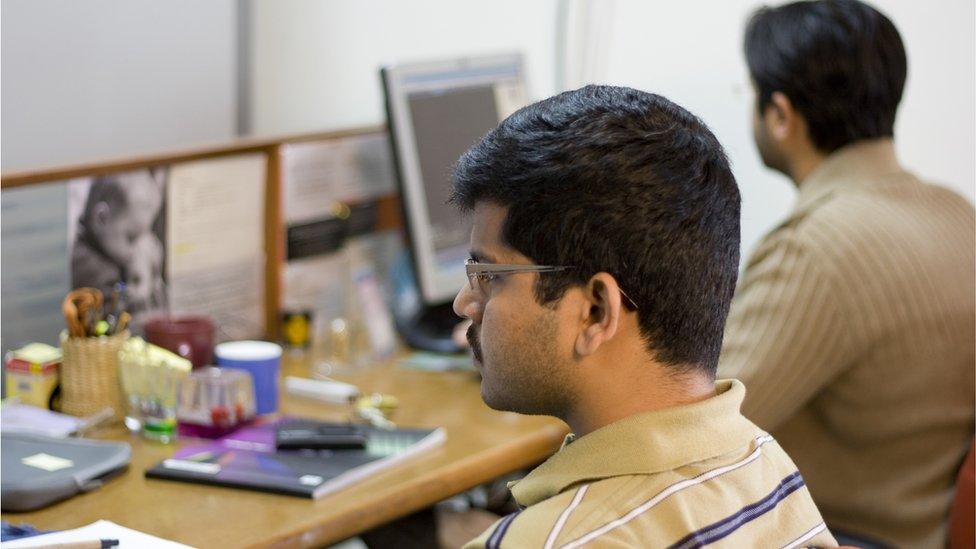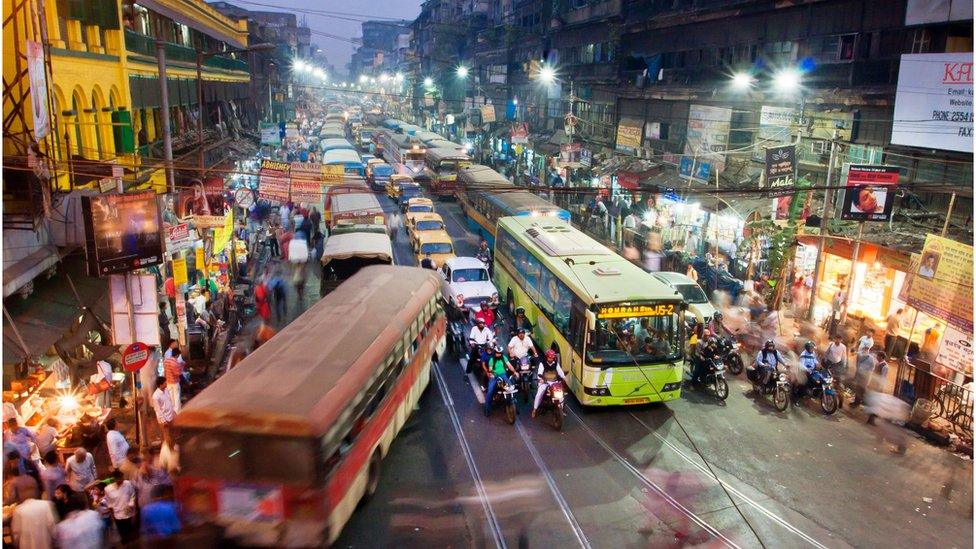Dreamers and Scammers
- Published

Most of us have had the call from someone with a strong Indian accent: "I'm phoning from Microsoft. My name is Justin, and we've been alerted to a problem with your computer, which needs an urgent software update."
That's the easy type to spot, particularly if you compute with Apple. What if they hit a raw nerve?
"I'm phoning from your tax office. We see that you've failed to pay your tax bill. If you don't pay some of it now, enforcement officers will call in the next 24 hours."
Or they play on the hopes of the financially distressed that they might get lucky: "I'm phoning to let you know the good news about that loan you applied for..."
You may have been infiltrated by malware: "This computer will not function unless you call us now at this number."
How many victims pay up because there's stuff on the hard disk they'd rather keep to themselves?
The scams may be unsubtle, but they're numerous, and it's astonishing how many of them work. We know because it's worth so many people working at them - thousands in the grimmer IT sweatshops of India's big cities.
Cold-calling
And one thing that strikes me every time I get the call from "Microsoft" is how dismal it must be to work in those call centres - cold calling, deceiving, ripping people off and probably getting earfuls of abuse.
An insight into this other end of the phone line and the scamming industry has been provided in a new book about India's 600 million people aged under 25. It doesn't pretend to represent them all, but what it does offer is a fairly bleak picture.
Snigdha Poonam is the Indian journalist, specialising in youth coverage, who has focussed on six Indians with interesting tales to tell, each representative of youth megatrends in play.

The overall finding is that young India is fiercely ambitious. This generation buys into the political rhetoric with which the ruling party in Delhi won its support. They are "the Dreamers".
I'm currently visiting India, and yes, there's something in the air (apart from alarming levels of pollution) about the boundless possibilities for a country of this scale, even with its vast challenges. Some of that comes from it being such an obviously young country.
But having set their stellar ambitions for wealth, celebrity, influence, power and respect, the very presence of so many others with similar ambitions means a lot of them are bound for disappointment. According to Poonam, they figure that out quite early.
Her disturbing conclusion is how easily they reach for something and someone to blame.
Entitlement
The politics of grievance, of groups quick to take offence, has long been a feature of India's public life.
The complex structure of positive discrimination for those who have lost out in the past through caste, religion, tribe, class or poverty is a focus for other groups.
Some demand their own quotas of university places or government jobs.
Poonam has found - and she's not the first - a fierce resentment from those born to a sense of entitlement, who feel there are imposters who have barged into the queue ahead of them.
Identity therefore becomes all the more important to everyone, and particularly to majority Hindus.
Asserting that identity, and doing so at a cost to others, is on the rise.
Call centres
Surely the best way of handling the pressure of so much youthful ambition is with a good reliable income, coupled with the love of a stable family?
Family formation is increasingly fraught. Arranged marriages remain very firmly the norm.
But modernity for the Dreamers means trying to figure out entirely new rules for pre-marriage dating. It seems to be the source of a lot of anxiety, frustration and messy gender relations.
That good reliable income is a dream for a lot of Dreamers, and one that's out of reach. Only a small minority can expect to get steady salaried jobs, even with college degrees.

The call centre industry - or Business Process Outsourcing (BPO) as it's known - has absorbed vast numbers, and for the first time opened the door to financial freedom for young graduate women.
But the dream is not what it was, at peak BPO, around 14 years ago. The industry is watching nervously as Artificial Intelligence gathers pace.
Snigdha Poonam recounts her own experience of responding to adverts, where she had to pretend to have reached the stated requirement of "40% spoken English".
That gets you in the door of a broker, where a fee is required, and an expensive training course, of dubious quality. That, in turn, might get you in the door for an interview. And by the time you've forked out to jump through further hoops, you're out of savings and you have to take whatever there is.
What she found was that leaves a lot of young people vulnerable to the lure of the scamming industry.
Victims
It's only recently that the scale of it has become clearer. This is down to a whistle-blower, who used to celebrate at the end of each day he'd spent ripping off gullible Americans, by persuading them they owed tax.
On one such call, his victim began to cry. She had to go to the food bank to feed her child, and had no money to pay the tax demand.
He hung up, walked out, and blew the whistle on that one Mumbai operation, where around 600 people were found to be at it.
Their earnings are miserly, at less than 2% of the takings. Typically, says the Dreamers author, they tell themselves they'll do it for a month or two, to get back on their feet financially, and then get something better.
They leave, and find there's not much out there for them, so they're drawn back into scamming, or looking for a scapegoat, or both.
In many cases the scam can be to draw more Indians like them into the web: "Are you looking for a new job? Yes, of course you are. Well, here's an offer that's too good to believe..."
Not only are these Dreamers failing to live the dream: they're often as much the victims as the people on the other end of the line.
Dreamers: How Young Indians are Changing Their World, by Snigdha Poonam, is published in the UK by Hurst Publishing.